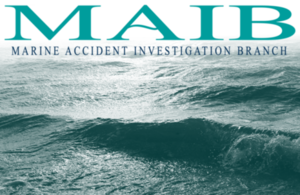Making caring visable
This year’s Carers Week theme is to help us all come together and make caring visible.
This year, unpaid carers have the additional worry of how to keep themselves and the person they care for safe during the coronavirus outbreak, so it is important they have the information, guidance and support they need.
There are 6.5 million people in the UK who are caring for a family member or friend with an illness, disability, addiction or mental health problem, yet many of these unpaid carers feel isolated and that their caring role is hidden.
1 in 7 of these carers will also be working as well as caring.
Caring can be rewarding but also challenging. Many unpaid carers are currently dealing with more challenges than ever before. It is important that carers know how to look after their own health and wellbeing, and that we all recognise the contribution that unpaid carers make.
Caring impacts on all aspects of life, from relationships and health to finances and work, and caring without the right information and support can be tough and should not be underestimated.
West Cumbria Carers runs a Workplace Carers Champion Scheme which enlists volunteers to become the ‘voice’ of carers in their workplaces and is continuing to establish and develop a network of Carers Champions and training sessions at Sellafield Ltd.
Suzanne Pender is the chair of the Family Support Network at Sellafield and the Carers Sub-group are a part of this network.
Suzanne said
This is a challenging time for everyone, but particularly people with caring responsibilities, many of whom are not visible in our community.
The Sellafield Carers Group can provide peer support and sign-posting, helping employees to manage both their home and work commitments more effectively.
Stephen Scott is leading the Carers Sub-group and said:
A workplace Carers Champion is someone who, through training, is aware of the stresses and strains a working carer may be facing and how West Cumbria Carers can support them. It is possible that a carer may not actually identify as such in the workplace, but through approaching and chatting with a Carers Champion feels comfortable enough to talk about their caring responsibilities with them.
I am proud to be leading the Carers Sub-group who help signpost the Sellafield Ltd workforce to possible available help.
Angela Longrigg, Volunteer and Projects Manager and Andrea Carlton, Adult Support Manager who work together in running the Workplace Carers Champion Scheme at West Cumbria Carers said:
Sometimes even just a few words from someone who understands your situation can be a lifeline for carers.
Caring can be lonely and isolating, so speaking to someone who has had a similar experience can make a big difference. Workplace Carers Champions can make that difference.
Unfortunately, West Cumbria Carers have had to postpone all planned activities for fundraising and Carers Week owing to Covid-19.
However, to try and keep some of their traditions alive, they are going to hold a “virtual” Cupcakes4Carers event on Wednesday 10th June between 10am and 2pm.
They would like to invite you to join them in spirit by sharing your #Cupcakes4Carers pics with us on Social Media.
You can tag them on Facebook using @westcumbriacarers and on Twitter @WCumbriaCarers.
They look forward to seeing you.

